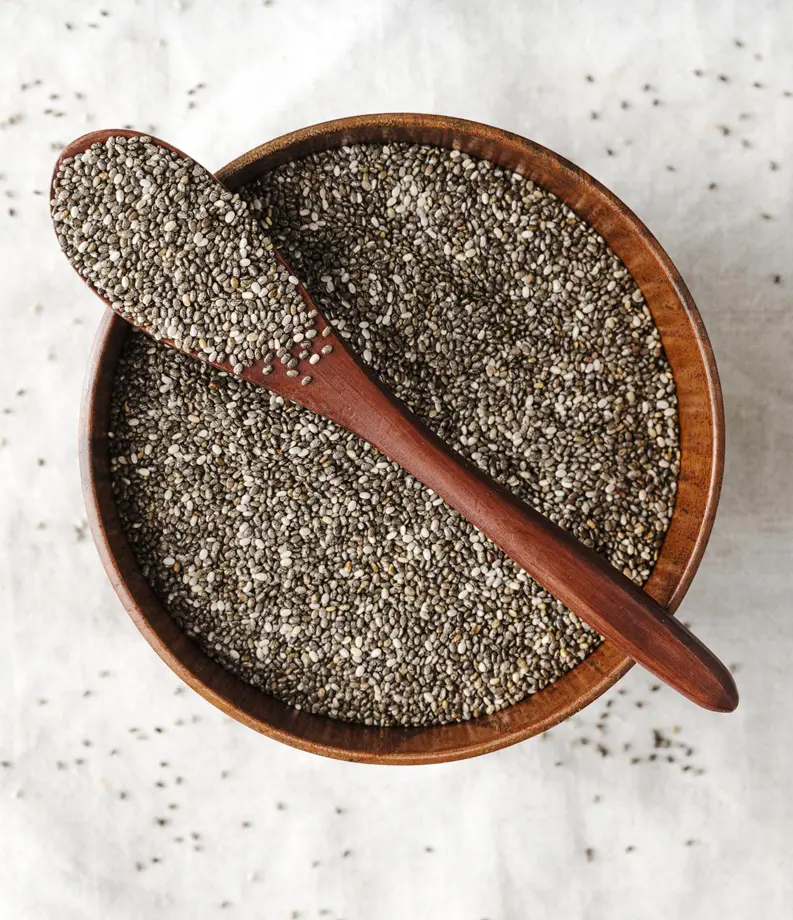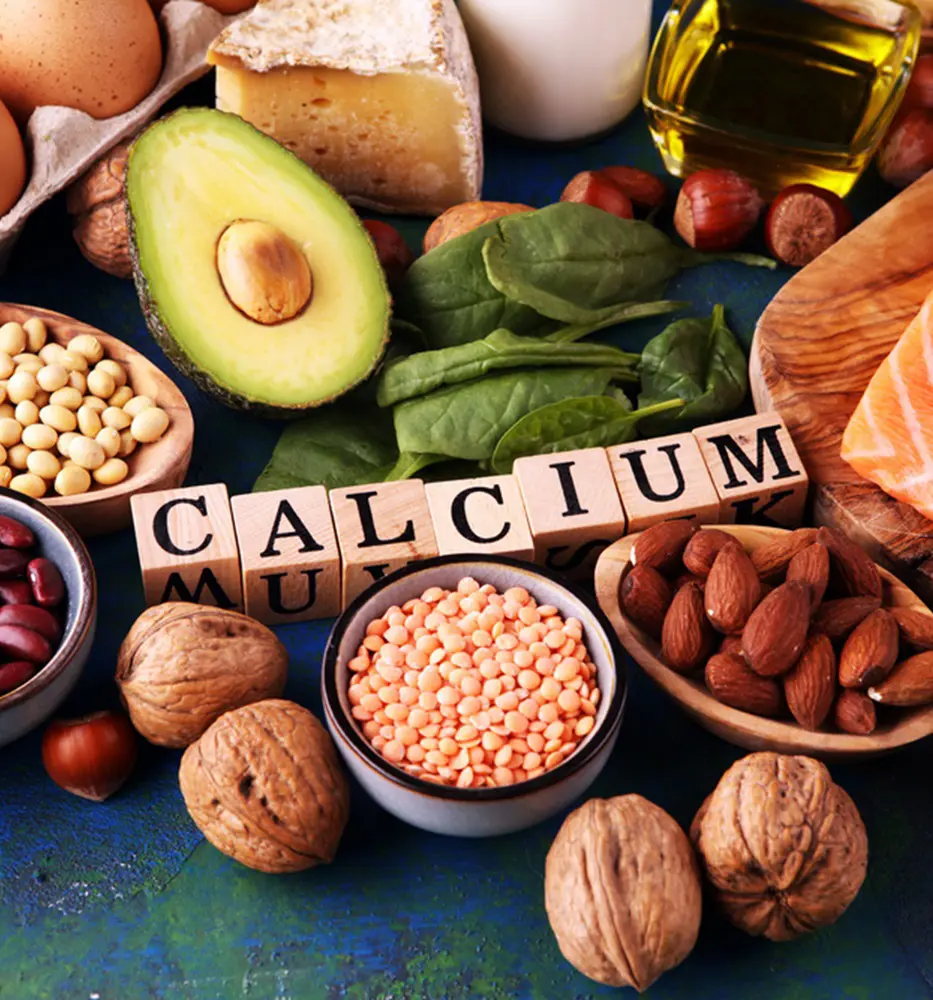Tofu Nutrition And Health Benefits
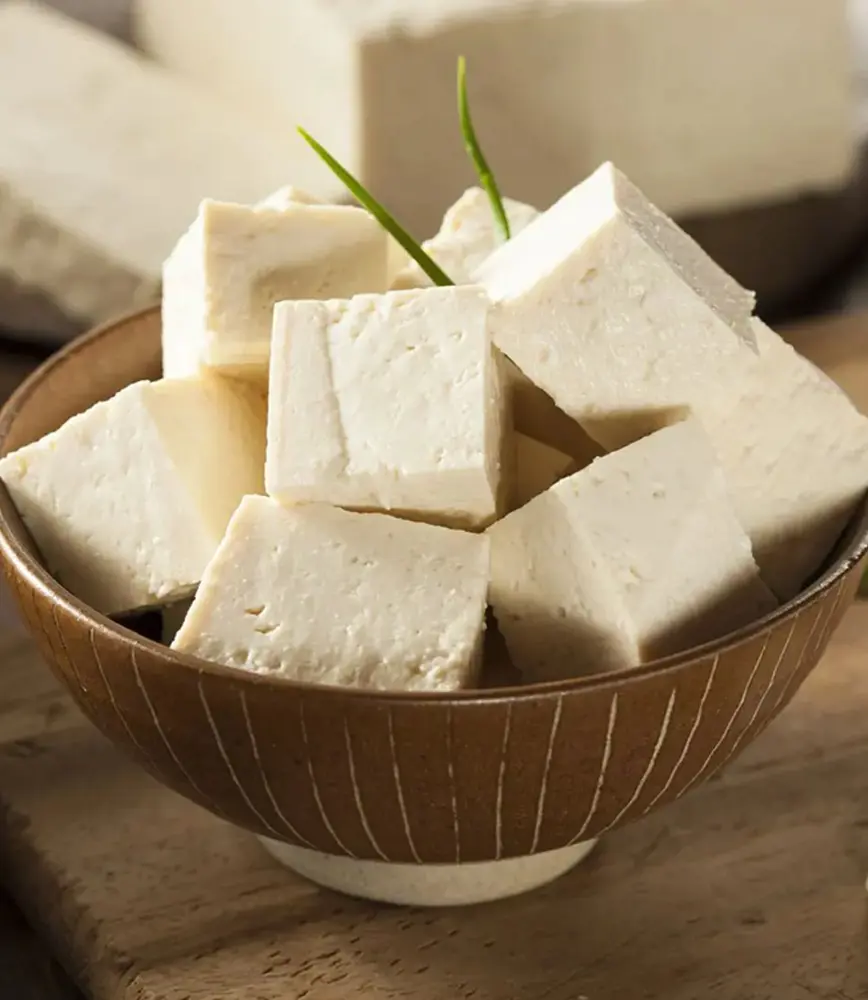
This post may contain affiliate links. If you make a purchase through links on our site, we may earn a commission.
Tofu is made by coagulating soy milk and then pressing the resulting curds into soft, white blocks. It has been a staple in Asian cuisines for centuries but has gained popularity worldwide due to its versatility, mild flavor, and numerous health benefits.
Its neutral flavor and versatile texture make it suitable for a wide range of dishes, including stir-fries, salads, soups, sandwiches, and desserts. It can easily absorb the flavors of other ingredients, making it a flexible ingredient in various cuisines and cooking styles.
Nutrition Facts Of Tofu
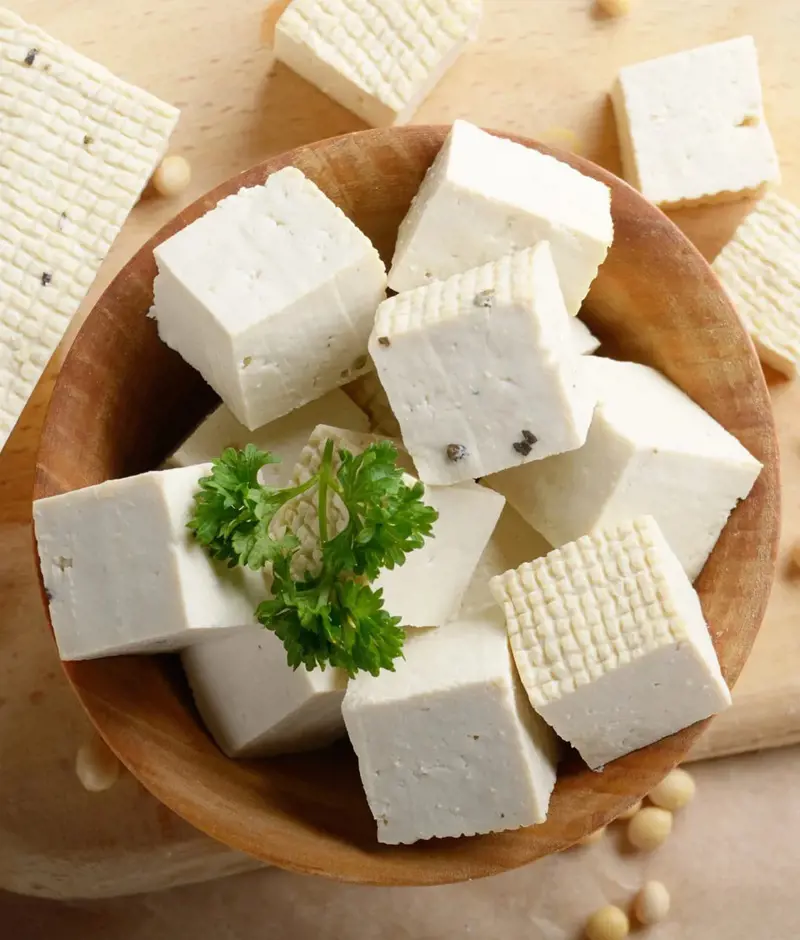
Nutrition facts for tofu can vary slightly depending on factors like firmness and whether it is fortified. Here's a general overview based on a typical serving size of 126 grams of raw tofu:
- Calories: 181 (depending on firmness and type)
- Fat: 11 grams, primarily unsaturated fats
- Sodium: 17.6 milligrams
- Carbohydrates: 3.5 grams
- Fiber: 2.9 grams
- Protein: 21.8 grams
- Calcium: 861 milligrams
- Manganese: 1.5 milligrams
- Selenium: 21.9mcg
- Iron: 3.4 milligrams
Carbohydrates
The carbohydrate content in tofu is relatively low compared to its protein and fat content. It is primarily made from soybeans which contain carbohydrates, but the process of making tofu involves removing some of the carbohydrates during the production of soy milk and the subsequent coagulation process.
On average, tofu contains about 2-4 grams of carbohydrates per 100 grams, depending on factors such as firmness and whether it is flavored or seasoned. This makes tofu a suitable option for those following low-carbohydrate diets.
Fats In Tofu
Tofu is generally considered to be a relatively low-fat food compared to many animal-based protein sources. On average, it contains approximately 4-8 grams of fat per 100 grams.
The majority of the fat in tofu is unsaturated fat which includes both monounsaturated and polyunsaturated fats. These types of fats are considered heart-healthy and can help improve cholesterol levels when consumed in moderation as part of a balanced diet.
Protein
Tofu is a rich source of plant-based protein, making it a popular choice for vegetarians, vegans, and those looking to incorporate more plant-based protein into their diets. The exact protein content of tofu can vary depending on factors such as the type and brand, but on average, it contains around 8-10 grams of protein per 100 grams.
This protein content makes tofu comparable to many animal-based protein sources, making it a valuable addition to meals for those looking to meet their protein needs without consuming meat or dairy products.
Vitamins and Minerals
Tofu is a nutrient-rich food that provides a variety of vitamins and minerals, making it a valuable addition to a balanced diet. It is a good source of Iron, Sodium, Manganese, Selenium and more.
It is often fortified with calcium, providing 861 milligrams of the daily value. Not only that but it is a good source of Iron (providing 3.4 milligrams of DV), Manganese (providing 1.5 milligrams of DV), Selenium (providing 21.9mcg of DV), and Calcium (providing 861 milligrams of DV).
Calories In Tofu

Tofu is generally considered a relatively low-calorie food compared to many other protein sources. On average, it contains approximately 70-140 calories per 100 grams.
Soft tofu tends to have a lower calorie content because it contains more water, while firmer varieties may have slightly higher calorie counts due to their denser texture.
Health Benefits Of Tofu

Tofu offers a variety of health benefits, making it a valuable addition to a balanced diet. Here are some of the potential health benefits of tofu:
Beneficial For Heart Health
Tofu is naturally low in saturated fat, which is known to increase LDL (bad) cholesterol levels and contribute to heart disease. By choosing tofu as a protein source instead of high-fat animal products, individuals can reduce their intake of saturated fat, thus promoting heart health.
It is a good source of unsaturated fats, particularly polyunsaturated fats like omega-3 and omega-6 fatty acids. These fats have been shown to have positive effects on heart health, including reducing inflammation, lowering blood pressure, and improving cholesterol levels.
Improves Bone Health
Tofu is often fortified with calcium, a mineral that is essential for bone health. Calcium is the primary building block of bones and teeth, and getting an adequate amount of calcium in the diet is crucial for maintaining strong and healthy bones.
Furthermore, it contains isoflavones which are plant compounds that have been associated with various health benefits, including bone health. Some studies suggest that isoflavones may help improve bone density and reduce the risk of osteoporosis, particularly in postmenopausal women.
Helps In Weight Management
Tofu is relatively low in calories compared to many animal-based protein sources. One serving of tofu provides a substantial amount of protein while containing fewer calories, making it a nutritious and filling option for those looking to manage their weight.
It is naturally low in saturated fat and cholesterol-free which makes it a heart-healthy protein option. Consuming foods that are low in saturated fat can help reduce the risk of weight gain and obesity, as well as lower the risk of cardiovascular disease.
May Help In Cancer Prevention
Tofu is rich in compounds called isoflavones which have been shown to have anti-cancer properties. Isoflavones have been found to inhibit tumor growth and reduce the risk of breast, prostate, and colorectal cancers.
It contains other phytochemicals, such as saponins, phytic acid, and lignans, which have been studied for their potential anticancer effects. These compounds have antioxidant and anti-inflammatory properties that may help protect against cancer.
Digestive Health
Tofu is a good source of fiber, which is important for maintaining digestive health. Fiber helps to keep the digestive system regular and can prevent constipation.
Not only that but it contains probiotics which are beneficial bacteria that live in the gut and help to maintain a healthy balance of microorganisms in the digestive system.
Blood Sugar Regulation
Tofu is a low glycemic index food which means that it is digested slowly and does not cause a rapid increase in blood sugar levels.
In addition, it is a good source of protein which can help to regulate blood sugar levels by slowing down the absorption of glucose in the bloodstream. The isoflavones in tofu may also help to improve insulin sensitivity and reduce the risk of insulin resistance.
Potential Risks Of Eating Tofu

Tofu is generally considered safe for most people when consumed as part of a balanced diet. However, there are a few potential risks associated with eating tofu:
Allergies: Some people may be allergic to soy, the primary ingredient in tofu. Soy allergies can cause symptoms such as hives, itching, swelling, difficulty breathing, and in severe cases, anaphylaxis. Individuals with soy allergies should avoid consuming tofu and other soy-based products.
Thyroid Function: Soy contains compounds called goitrogens which can interfere with thyroid function in some people. Goitrogens can inhibit the uptake of iodine by the thyroid gland, potentially leading to hypothyroidism.
Estrogenic Effects: Soy contains isoflavones, plant compounds that mimic estrogen in the body. Concerns have been raised about the potential estrogenic effects of soy consumption, particularly about hormone-sensitive conditions such as breast cancer, prostate cancer, and endometriosis.
Different Types Of Tofu
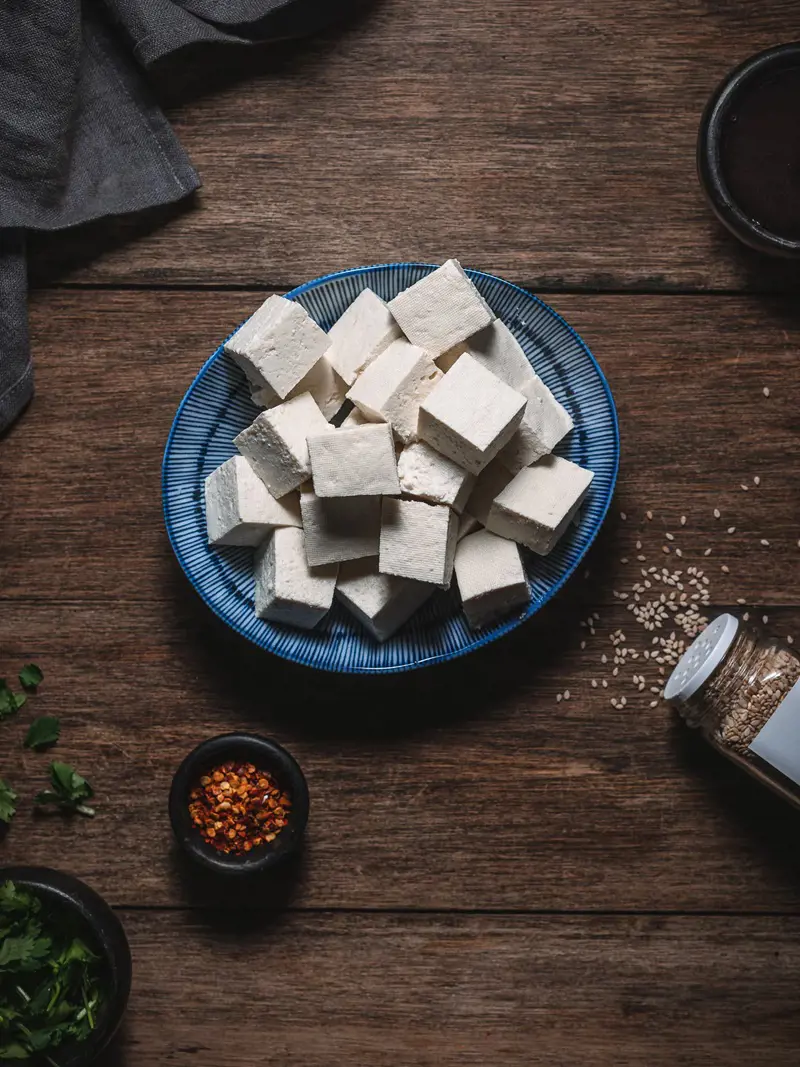
There are different types of tofus to choose from each boasting its unique texture, taste, and even nutritional content. Here is a quick guide on the most well-known and famous types of tofus.
- Soft Tofu: It has a high water content and a smooth, custard-like texture. It can also be used as a substitute for dairy products in vegan recipes.
- Firm Tofu: It has a denser texture and holds its shape well when cooked. It is versatile and can be used in a variety of dishes, including stir-fries, curries, scrambles, and sandwiches.
- Tofu Skins (Yuba): Tofu skins are formed during the production of tofu and are collected from the surface of the soy milk as it cools. They have a chewy, slightly elastic texture and a savory flavor.
- Flavored Tofu: Some tofu products are flavored or seasoned with ingredients like herbs, spices, and sauces to enhance their taste.
- Smoked Tofu: It has a smoky flavor and a firm, chewy texture. It is typically marinated and smoked to enhance its taste.
Food Safety And Storage
Tofu is perishable and should be refrigerated promptly after purchase. Store tofu in its original packaging if unopened. Once opened, transfer any leftover tofu to an airtight container filled with water and store it in the refrigerator.
Keep tofu refrigerated at a temperature of 40°F (4°C) or below to prevent the growth of bacteria and maintain its freshness. Check the expiration date on the tofu packaging and consume it before the indicated date for the best quality.
How To Make Tofu?

Making tofu from scratch involves several steps and requires relatively few ingredients. Here's a basic outline of the process:
- Soak And Blend The Soybeans: Soak dried soybeans in water overnight. Drain the soaked soybeans and blend them with fresh water in a blender or food processor until smooth.
- Cook The Soy Milk: Transfer the blended mixture to a large pot and cook it over medium heat, stirring frequently to prevent sticking. Heat the mixture to around 180-200°F but avoid boiling.
- Strain The Soy Milk: Once the soy milk is heated, strain it through a cheesecloth or fine mesh strainer to separate the pulp (okara) from the liquid.
- Coagulate Soy Milk: Dissolve a coagulant, such as nigari, gypsum, or lemon juice, in a small amount of water. Add the coagulant solution to the hot soy milk while stirring gently. The soy milk will begin to curdle and form tofu curds.
- Press The Tofu: Line a tofu mold or a shallow container with cheesecloth and carefully ladle the curdled soy milk into it. Fold the cheesecloth over the top and place a weight on it to press out excess liquid.
Recent posts
Nutrition
Nutrition
16 Benefits Of Coriander That Will Surprise You
Abundant in nutrients and antioxidants, coriander is an annual herb with a characteristic aroma that is extensively used around the world. Both coriander leaves (also called cilantro) and seeds are used in various cuisines around the world. Known fo...
Nutrition
Chia Seeds Benefits: 15 Reasons To Eat These Tiny Seeds
Chia seeds are tiny edible seeds obtained from the plant known as "Salvia hispanica", belonging to the mint family. Oval, gray, and filled with black and white spots, these small seeds are highly valued for their abundant nutrients and health be...
Nutrition
How Much Calcium Is Actually Needed?
Calcium is a mineral associated with bones, muscles and the nervous system in the body. Current dietary guidelines suggest different Recommended Dietary Allowances(RDAs) for adult males and females, with 1000mg being optimal for males and 1200mg for...
Nutrition
B12 Vitamin Food Sources: A Comprehensive Guide
Vitamin B12, an essential nutrient, plays a crucial role in various bodily functions, including red blood cell production, nerve function, and DNA synthesis. While animal-based foods are the primary sources of B12, certain fortified plant-based foods...
Nutrition
What Foods Are High In Cholesterol? 20 Foods To Avoid
Animal products like meat, eggs, milk, and cheese are sources of dietary cholesterol, unlike plant-based foods. For those aiming to lower their cholesterol intake, it's essential to be mindful of animal-based food choices. While some high-cholesterol...
Nutrition
18 Fat Burning Smoothies For Weight Loss
The weight loss journey is tough if you have to get on the same path day after day, facing cravings and temptations along the way. We suggest you stop making it a monotonous struggle and make it a flavorful adventure instead. One of the easiest and m...

